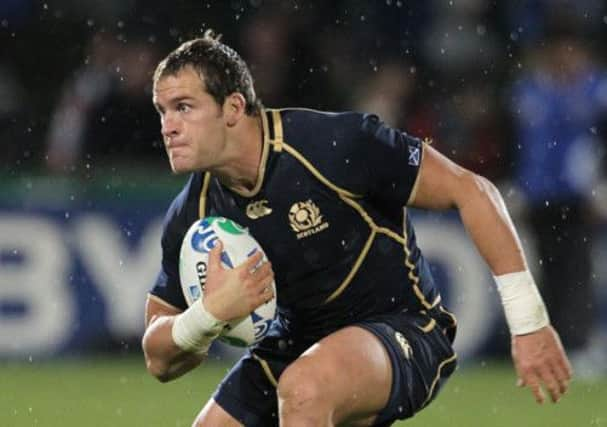Rugby dementia link confirmed by tests


Dr Willie Stewart yesterday claimed that the discovery suggested “one or two” players competing in the Six Nations every year may go on to develop the condition.
In an interview, the Glasgow-based neurologist described how he had examined sections of brain tissue in a retired rugby player and found abnormal proteins associated with head injuries and dementia.
Advertisement
Hide AdAdvertisement
Hide AdThe unnamed former player who took part in the study was found to have higher levels of the protein than a retired amateur boxer who has dementia pugilistica.
The boxer had been diagnosed with dementia pugilistica – more commonly known as punch drunk syndrome – which is thought to affect up to 20 per cent of boxers who retire after long careers.
Symptoms, which usually appear between 12 and 16 years after the boxer’s career begins, can include memory, speech and personality problems, tremors and a lack of coordination.
The condition has been recognised for more than a century, and until recently had been thought to only affect boxers who suffered repeated concussive injuries through being punched in the face.
But Stewart, a consultant at the Southern General Hospital in Glasgow, said: “What we are finding now is that it is not just in boxers. We are seeing it in other sports where athletes are exposed to head injury in high levels.
“Those sports include American football, ice hockey and also now I have to say I have seen a case, the same pathology, in somebody whose exposure was rugby.”
The rugby player was aged in his fifties and had early onset dementia. He had a number of abnormal proteins in a section of his brain which was comparable to a young man who had suffered a “moderate to severe” head injury in an assault.
Stewart did say that the percentage of rugby players affected was likely to be far lower than in sports such as boxing, American football and ice hockey, where competitors are more likely to suffer repeated head trauma and concussions.
Advertisement
Hide AdAdvertisement
Hide AdBut he told BBC Radio Scotland’s Sport Nation programme: “I think on current evidence coming from American studies, from looking at American football, and our historical evidence looking at boxers throughout the world, it would be foolish to think there will be no problem and that rugby is immune from brain damage.
“What the numbers are, what proportion of people who play rugby, how often you may have to get concussed, how long after you may develop problems, these are questions we can’t answer.
“We would suspect it would be a fairly low number, but not zero. Let’s say it is 1 per cent of people who are playing rugby at international level may go on to develop long-term problems.
“In any Six Nations weekend that is one or two players who may go on and develop a dementia they wouldn’t otherwise have been exposed to. That is a realistic number.”
His findings come at a time when increasing concern is being expressed about the severity and force of the collisions which characterise the modern professional game.
The former Scotland internationalist Rory Lamont recently claimed that players were “cheating” concussion protocols and insisted many well-known figures are knowingly taking the field with head injuries.
The 30-year-old retired last month after a succession of injuries, undergoing 16 operations and suffering “at least six or seven clean knock-outs” in games, and many more what he terms “minor concussions”.
One of his injuries saw him carried off the Murrayfield pitch with a facial injury after clashing with England’s Iain Balshaw in the 2008 Calcutta Cup match, which Scotland won narrowly 15-9.
Advertisement
Hide AdAdvertisement
Hide AdA spokesman for the Scottish Rugby Union said: “Scottish Rugby believes player safety is of paramount importance. It is a great game for all people and we are always looking at ways of making it safer.
“We welcome this report and we would be happy to pass it on to the International Rugby Board, and if it were to help their thinking on player safety that can only be a positive thing.”